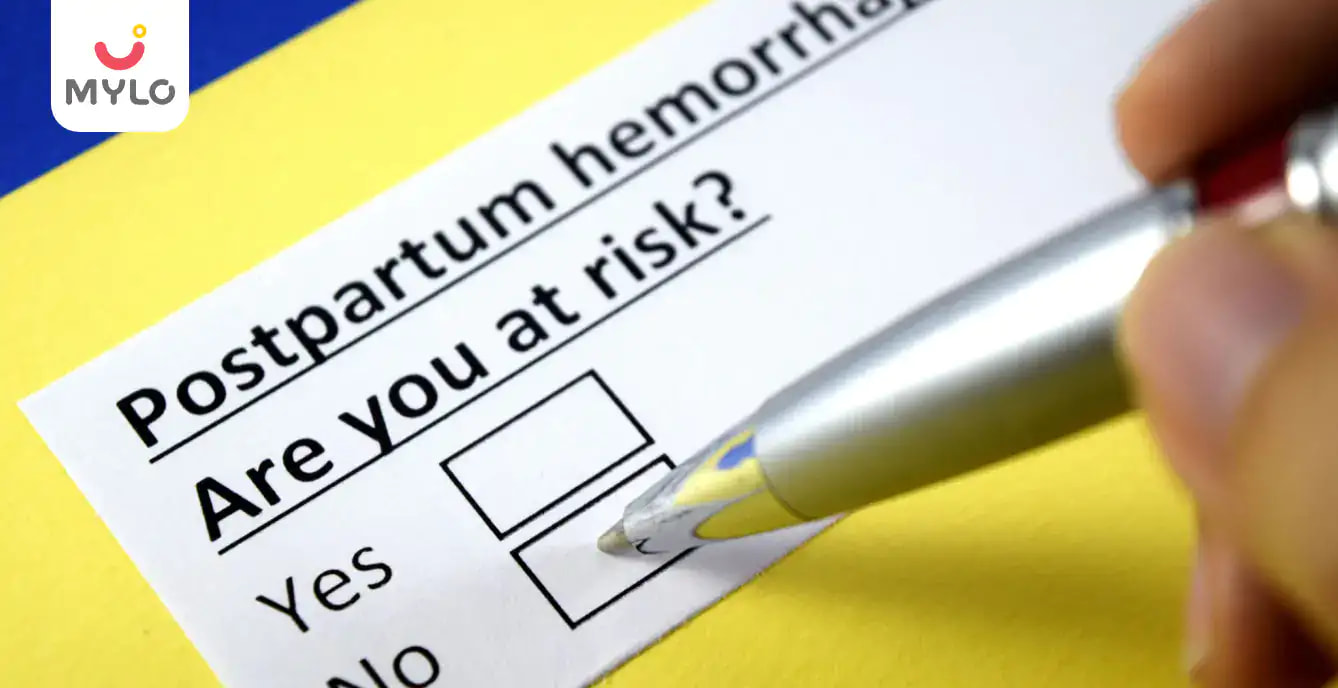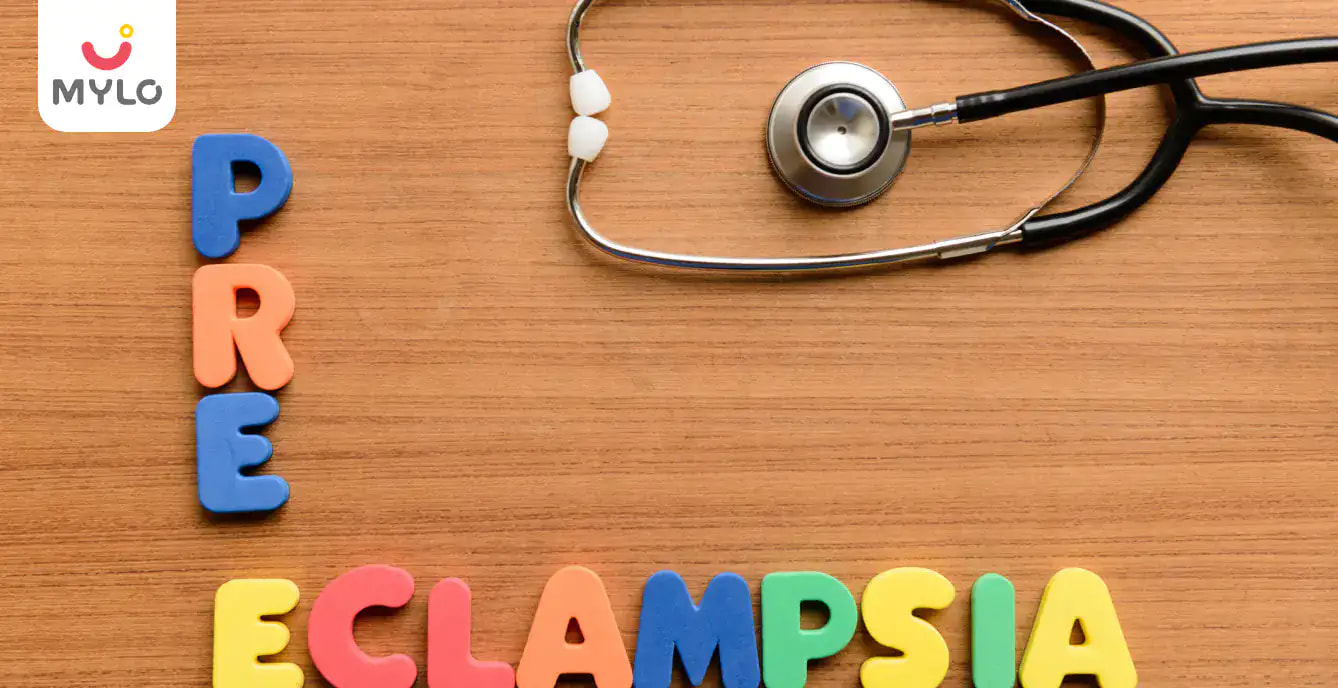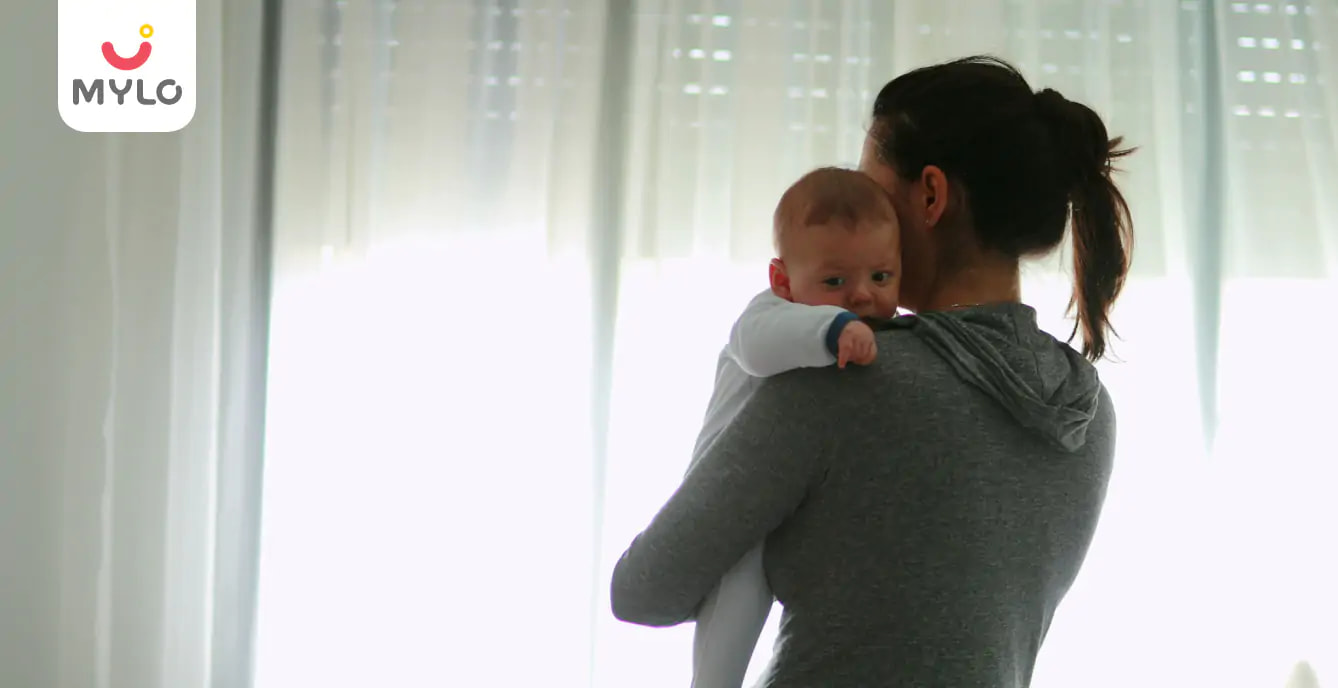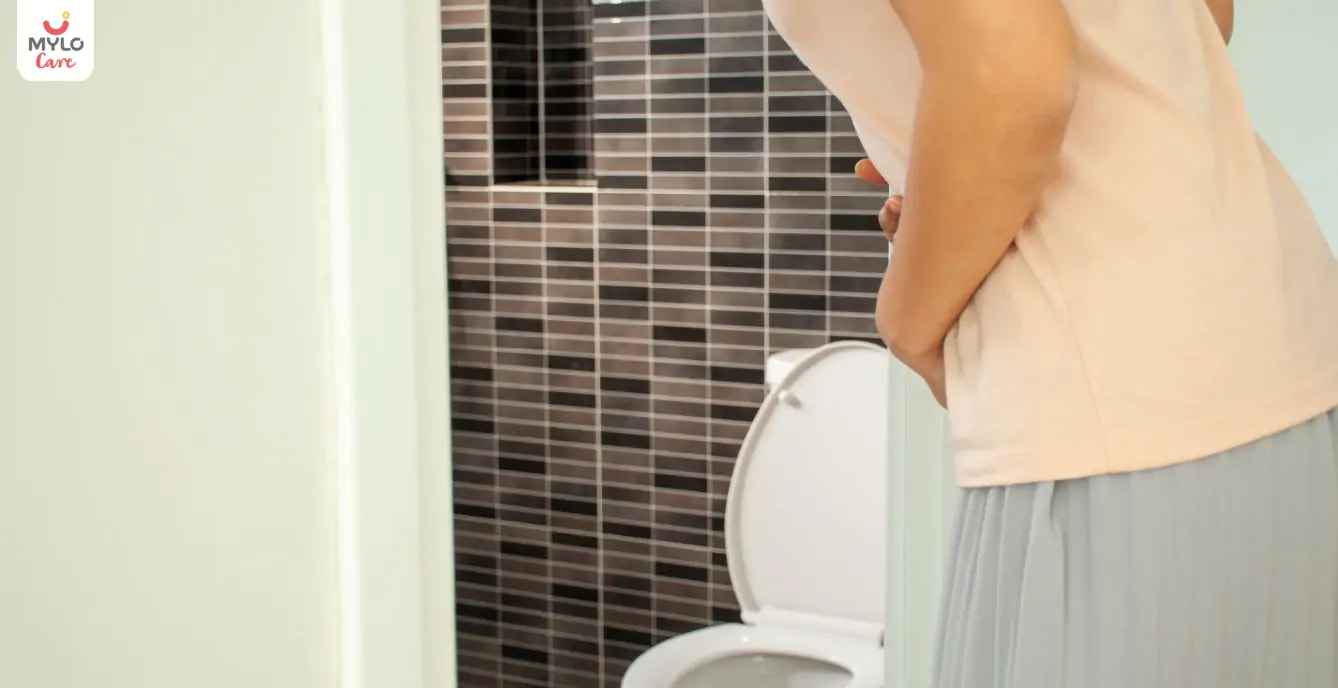Home

Postnatal Care

What is postpartum hemorrhage?
In this Article

Postnatal Care
What is postpartum hemorrhage?
Updated on 3 November 2023
Besides dealing with postpartum anxiety, depression and numerous hormonal changes, women may also experience postpartum hemorrhage after childbirth. Postpartum hemorrhage (PPH) is serious bleeding from the vagina after childbirth. It is a life-threatening condition that can lead to the death of a person. PPH can happen soon after birth or until 84 days after during the postpartum period. Detection at an initial stage is life-saving.
Vaginal bleeding is common after childbirth in case of any form of delivery however, if the amount of bleeding is over 32 ounces, it is considered to be postpartum hemorrhage. PPH can lead to severe complications. A favourable treatment outcome is seen when it is caught and treated early.
What are the different types of postpartum hemorrhage?
There are two types of postpartum hemorrhage. When bleeding occurs:
- during the first 24 hours after delivery- Primary PPH
- after 24 hours of delivery and for up to 12 weeks- Secondary PPH
What are the symptoms of postpartum hemorrhage?
Postpartum hemorrhage can often be confused with menstruation after delivery. When experiencing an unusual amount of bleeding, always consult a physician.
Common symptoms of PPH are:
- unstoppable bleeding
- drop in blood pressure
- increase in heart rate
- decrease in red blood cell count level
- swelling and pain around the vagina
What causes postpartum hemorrhage?
During the delivery, after the baby is pushed out, there is a third contraction. During this stage, the uterus resumes contraction and pushes the placenta out. This contraction puts pressure on blood vessels. When this pressure is not sufficient, it causes bleeding.
Other causes of postpartum hemorrhage are:
- when some placenta is left in the womb.
- Tears in the vagina
- Tear in the uterus
- Bleeding into spaces adjacent to the vagina. This is called a hematoma.
- Bleeding disorders
How is PPH diagnosed?
The healthcare workers first review the health history and perform a physical examination. Lab tests help confirm the diagnosis. Some of the lab tests taken are:
- The quantity of blood lost
- Measurement of blood pressure and pulse
- RBC count
- Checking the clotting factors in the blood
How do doctors treat postpartum hemorrhage?
The goal is to stop bleeding by finding the cause. The postpartum hemorrhage treatment includes:
- Medicine or massage of the uterus to increase the contraction
- Removing the pieces of the placenta from the uterus
- Look for areas around the vagina and uterus for any injuries.
- Ballooning or foley catheter to put pressure on the bleeding vessel. Even a clean sponge or cotton can be packed in the uterus if the others mentioned are not there.
- Open the stomach to look for the cause of the bleeding.
- Using sutures, placing special gel, glue,
- IV fluids, blood products, and blood are given to prevent shock.
What medications treat postpartum hemorrhage?
Medications for postpartum hemorrhage treatment are given to contract the uterus. This is given when inadequate contraction is the reason for the bleeding. The common drug is oxytocin, methylergonovine, and prostaglandins.
Who is affected by this?
Women with problems in the placenta during pregnancy are at risk of developing PPH. Some other causes are:
- numerous pregnancies
- Twins or triplets
- birthing large baby
- a lot of amniotic fluid
- obesity
- Infection
- prolonged labour
How do you recover from a postpartum hemorrhage?
The path of recovery is different for everyone. Recovery depends on the volume of blood loss that occurred. Postpartum care is important to help you recover by doing the following:
- eating healthy
- resting
- drinking a lot of water
- taking iron supplements as recommended by the doctor.
FAQs
1. What are the possible complications of postpartum hemorrhage?
Ans. PPH can cause complications like an increased heart rate, rapid breathing, and decreased blood flow. These symptoms can affect all the vital organs of the body, causing shock. Death can occur when not treated.
2. What can be done to prevent postpartum hemorrhage?
The best way is by identifying risk factors before pregnancy. Persons should share their complete medical histories. Routine medications can be lifesaving.
3. How common is postpartum hemorrhage?
Ans. About 1 in 5 women experience this among a group of 100 women.
4. Can you have another baby after a postpartum hemorrhage?
Ans. Yes, but there is also a chance that PPH can occur again. Hence, individuals should always provide a complete medical history prior to delivery.
5. How can PPH prevent haemorrhage during childbirth?
Ans. It is always better to get admitted in a setting where emergency care is available. Early care can be lifesaving and lead to a faster recovery.
6. Can postpartum haemorrhage lead to death?
Ans. Yes, it is a fatal condition when left untreated. Persons lose blood very quickly, leading to a very rapid fall in BP. This is called shock, and it can lead to death.
PPH is a critical condition that requires immediate treatment. When experiencing any severe bleeding, it is important to contact the physician. False alarms are okay; it is better to be safe than sorry. Other signs are dizziness, feeling faint, and blurred vision. Early diagnosis and prompt management can be lifesaving. It is important to tell the doctors about any past experience with PPH and provide a full medical history.



Written by
Priyanka Verma
Priyanka is an experienced editor & content writer with great attention to detail. Mother to an 11-year-old, she's a ski
Read MoreGet baby's diet chart, and growth tips

Related Articles
Related Questions
Hello frnds..still no pain...doctor said head fix nhi hua hai..bt vagina me pain hai aur back pain bhi... anyone having same issues??

Kon kon c chije aisi hai jo pregnancy mei gas acidity jalan karti hain... Koi btayega plz bcz mujhe aksar khane ke baad hi samagh aata hai ki is chij se gas acidity jalan ho gyi hai. Please share your knowledge

I am 13 week pregnancy. Anyone having Storione-xt tablet. It better to have morning or night ???

Hlo to be moms....i hv a query...in my 9.5 wk i feel body joint pain like in ankle, knee, wrist, shoulder, toes....pain intensity is high...i cnt sleep....what should i do pls help....cn i cosult my doc.

Influenza and boostrix injection kisiko laga hai kya 8 month pregnancy me and q lagta hai ye plz reply me

Related Topics
RECENTLY PUBLISHED ARTICLES
our most recent articles

Diet & Nutrition
গর্ভাবস্থায় আলুবোখরা: উপকারিতা ও ঝুঁকি | Prunes During Pregnancy: Benefits & Risks in Bengali

Diet & Nutrition
গর্ভাবস্থায় হিং | ঝুঁকি, সুবিধা এবং অন্যান্য চিকিৎসা | Hing During Pregnancy | Risks, Benefits & Other Treatments in Bengali

Women Specific Issues
স্তনের উপর সাদা দাগ: লক্ষণ, কারণ এবং চিকিৎসা | White Spots on Nipple: Causes, Symptoms, and Treatments in Bengali

Diet & Nutrition
গর্ভাবস্থায় পোহা: উপকারিতা, ধরণ এবং রেসিপি | Poha During Pregnancy: Benefits, Types & Recipes in Bengali

Diet & Nutrition
গর্ভাবস্থায় মাছ: উপকারিতা এবং ঝুঁকি | Fish In Pregnancy: Benefits and Risks in Bengali

Diet & Nutrition
গর্ভাবস্থায় রেড ওয়াইন: পার্শ্ব প্রতিক্রিয়া এবং নির্দেশিকা | Red Wine During Pregnancy: Side Effects & Guidelines in Bengali
- ইনার থাই চ্যাফিং: কারণ, উপসর্গ এবং চিকিৎসা | Inner Thigh Chafing: Causes, Symptoms & Treatment in Bengali
- গর্ভাবস্থায় ব্রাউন রাইস: উপকারিতা ও সতর্কতা | Brown Rice During Pregnancy: Benefits & Precautions in Bengali
- Velamentous Cord Insertion - Precautions, Results & Safety
- Unlock the Secret to Flawless Skin: 7 Must-Have Qualities in a Face Serum
- Unlock the Secret to Radiant Skin: How Vitamin C Serum Can Transform Your Complexion
- Gender No Bar: 10 Reasons Why Everyone Needs a Body Lotion
- Unlock the Secret to Radiant Skin How to Choose the Perfect Body Lotion for Your Skin Type
- Top 10 Reasons to Apply a Body Lotion After Every Bath
- Communication in Toddlers: Milestones & Activities
- How to Improve Vocabulary for Toddlers?
- A Comprehensive Guide to Understanding Placenta Accreta
- Vulvovaginitis in Toddlers Causes, Symptoms and Treatment
- A Comprehensive Guide to Understanding Cerebral Palsy in Children
- Bitter Taste in Mouth During Pregnancy: Understanding the Causes and Remedies


AWARDS AND RECOGNITION

Mylo wins Forbes D2C Disruptor award

Mylo wins The Economic Times Promising Brands 2022
AS SEEN IN
















- Mylo Care: Effective and science-backed personal care and wellness solutions for a joyful you.
- Mylo Baby: Science-backed, gentle and effective personal care & hygiene range for your little one.
- Mylo Community: Trusted and empathetic community of 10mn+ parents and experts.
Product Categories
baby carrier | baby soap | baby wipes | stretch marks cream | baby cream | baby shampoo | baby massage oil | baby hair oil | stretch marks oil | baby body wash | baby powder | baby lotion | diaper rash cream | newborn diapers | teether | baby kajal | baby diapers | cloth diapers |








